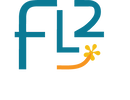References and ResourcesThese are just some of the resources that form the backbone of the FL2 project. The list below is meant to provide a starting point for Language Educators interested in learning more about how Positive Psychology, Transition Pedagogy and CLIL can support their students' wellbeing.
|
Proudly powered by Weebly
